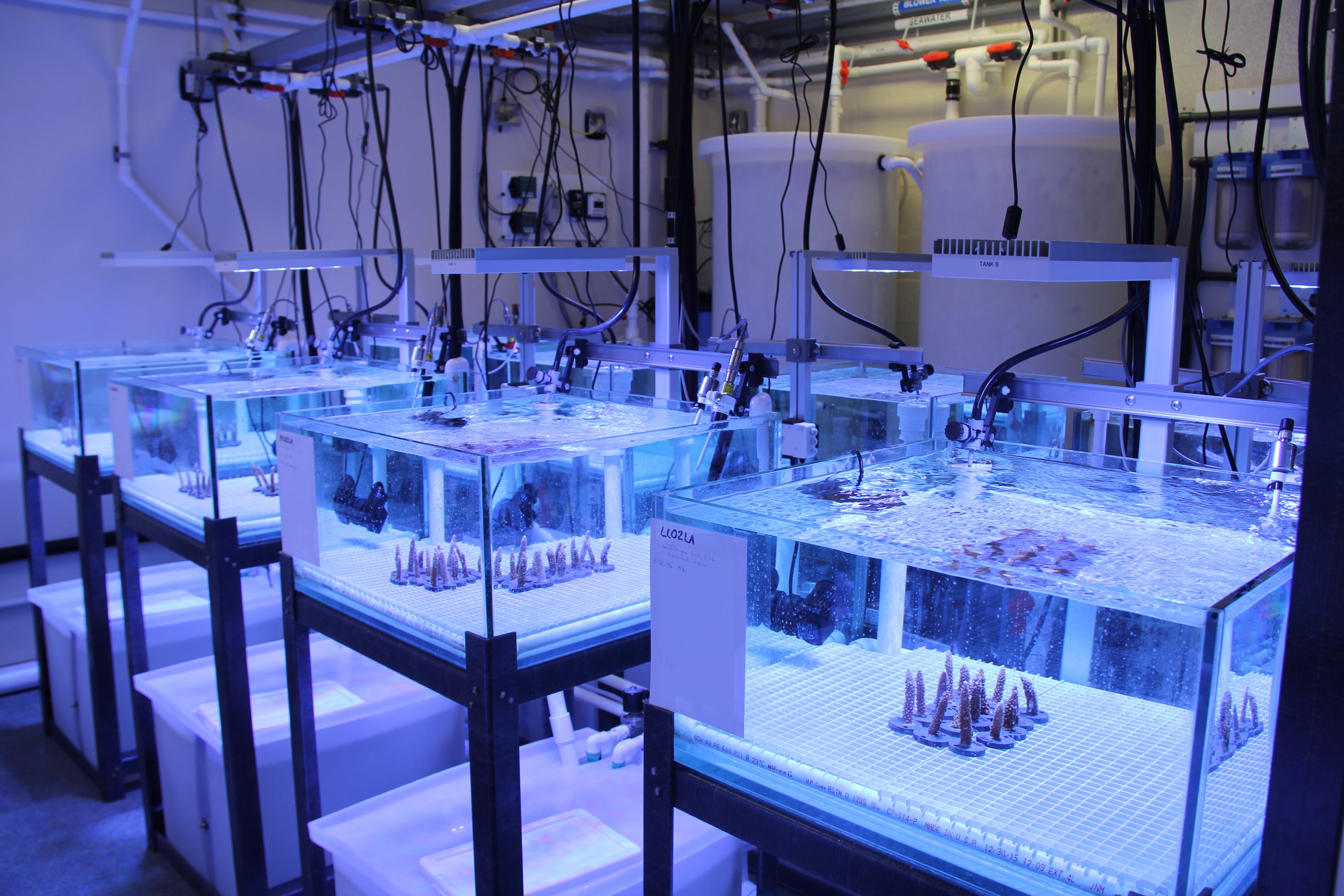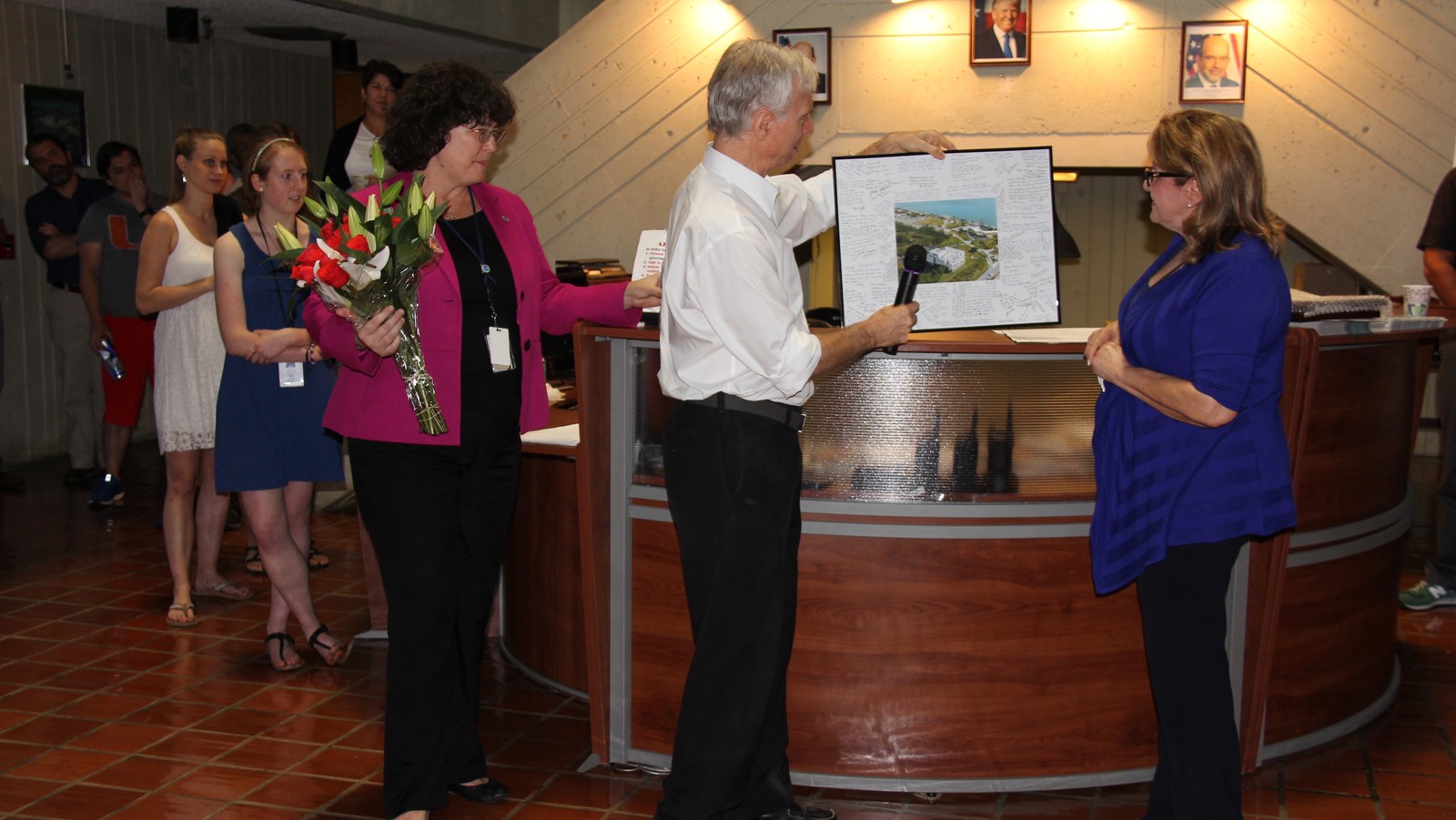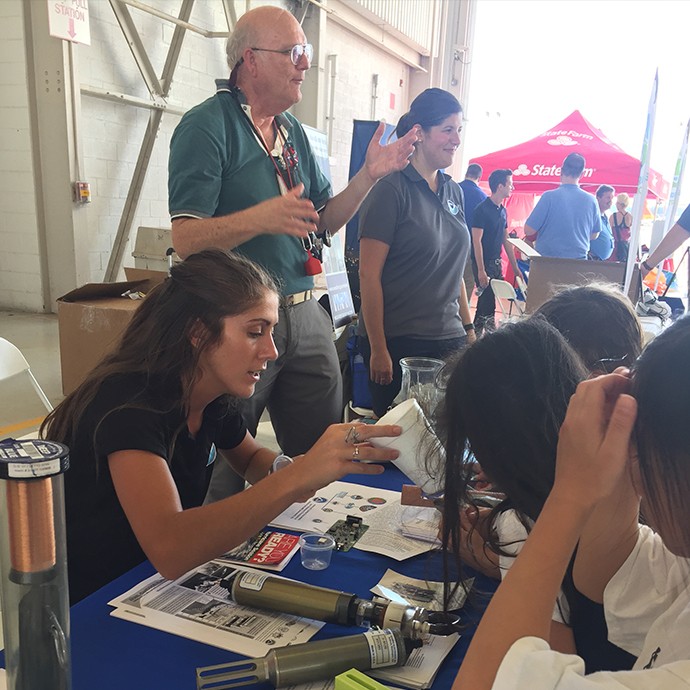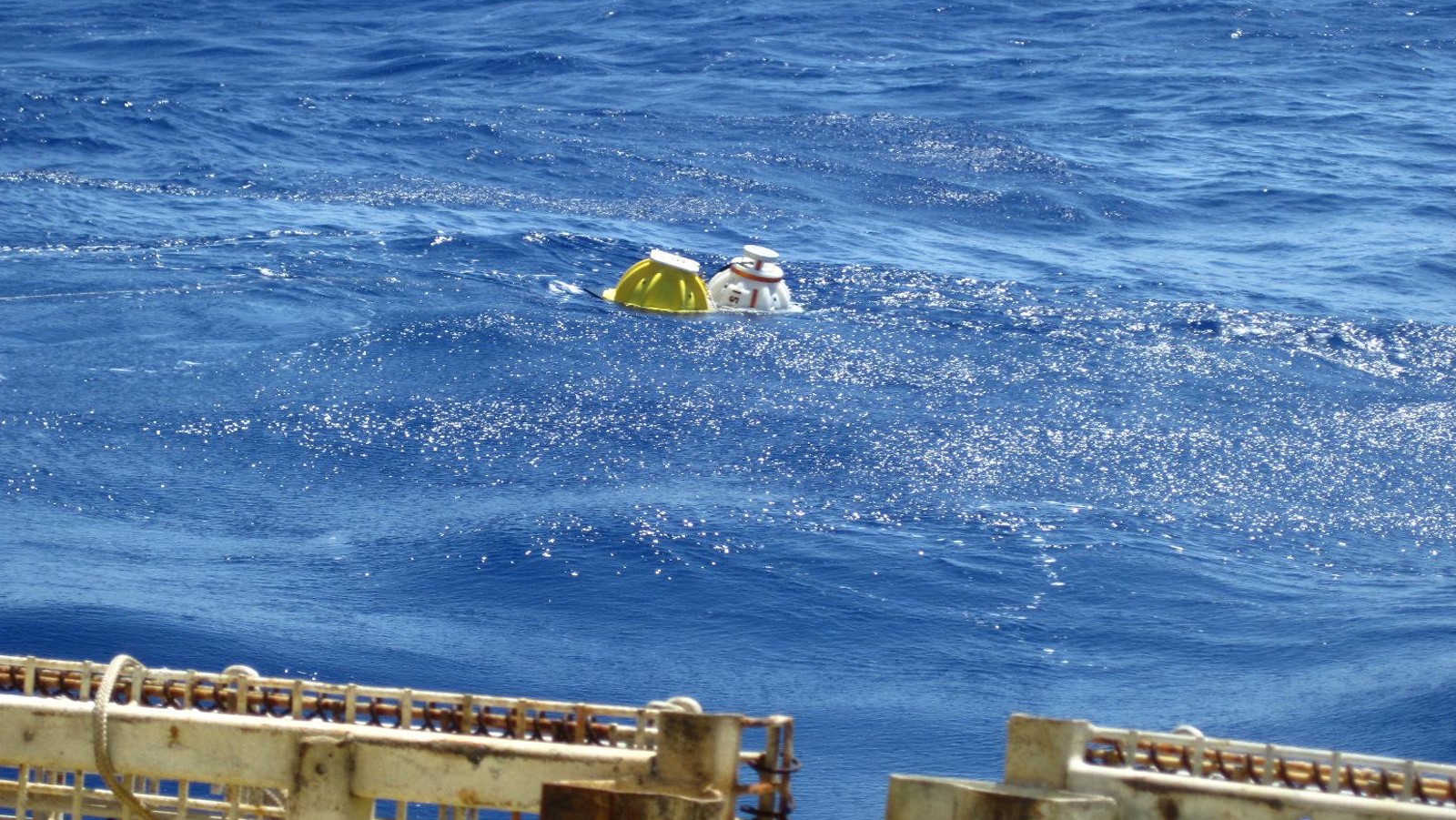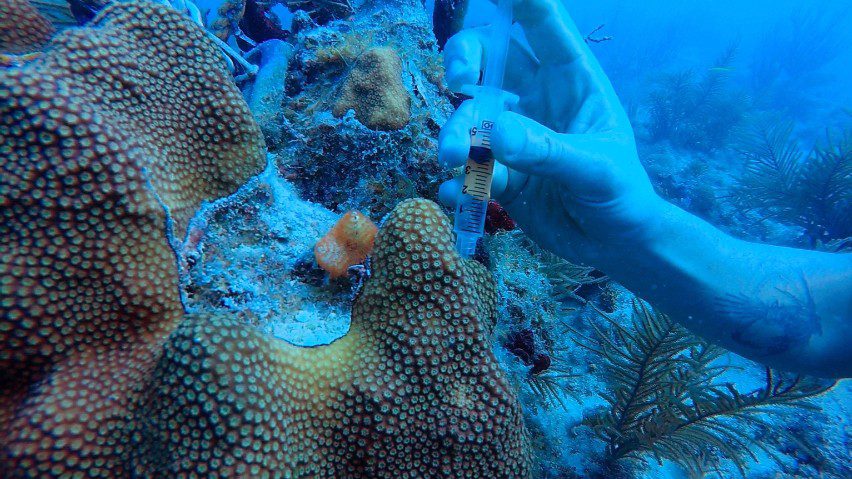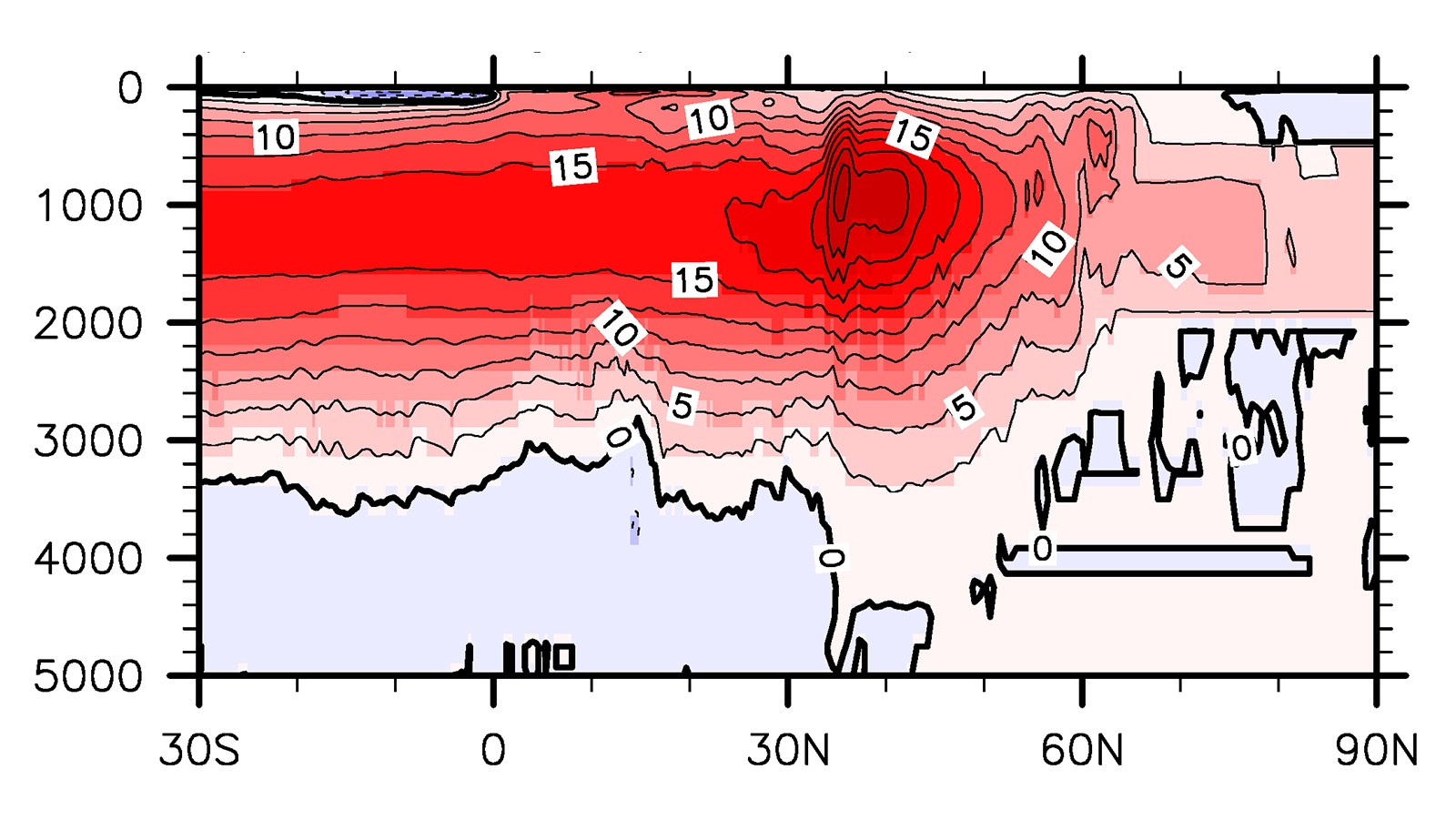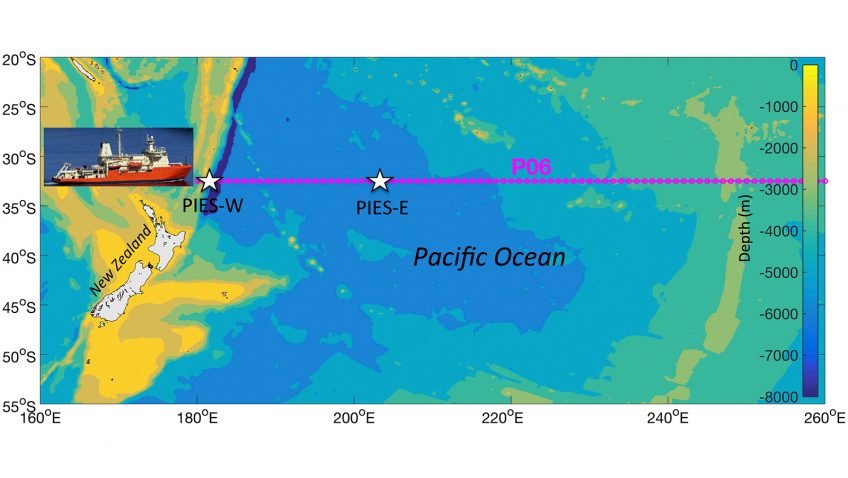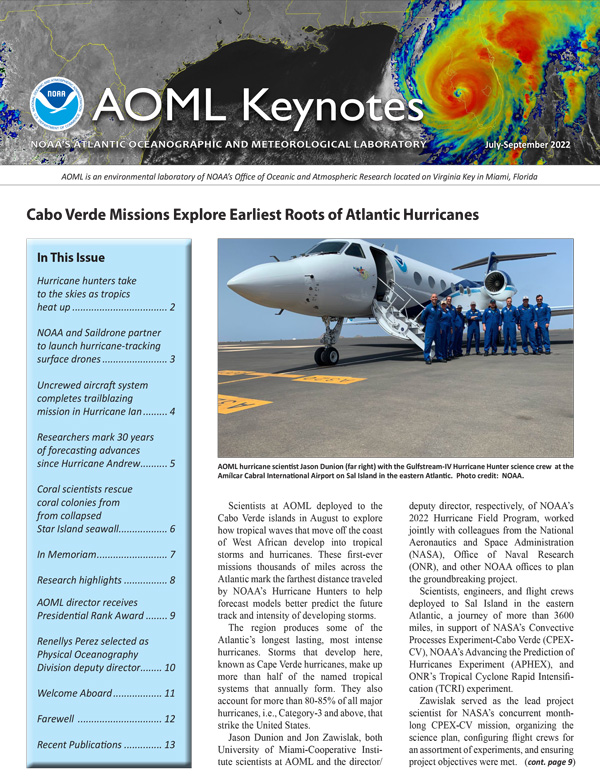Frost Science IMPACT Summer Camp
This June, AOML hosted students from the Frost Science Upward Bound Math and Science program. This program provides high school students with access to mentors and technology, interaction with scientists, as well the IMPACT (Integrated Marine Program and College Training) Summer Program, in which they delve specifically into marine science.

